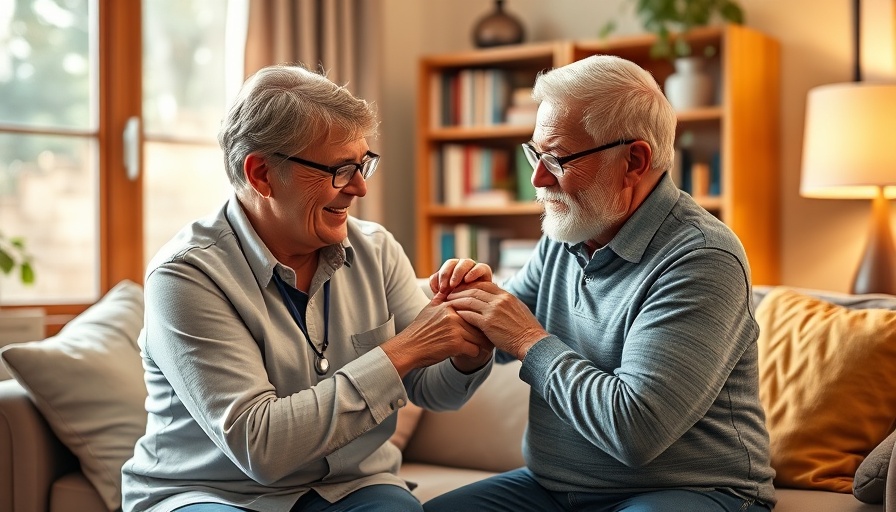
Understanding the Rise of At-Home STD Testing
In recent years, the conversation surrounding sexually transmitted diseases (STDs) has shifted significantly, especially with the introduction of at-home testing options. Soon, many will be able to test for STDs discreetly right from their homes, paving the way for increased awareness and health management. This is particularly significant for older adults, who may feel stigmatized or embarrassed when considering testing. With these new methods, testers can maintain privacy while taking proactive steps towards their sexual health.
Recognizing the Alarming Symptoms
Understanding the signs that could indicate an STD is crucial for early detection and treatment. While many may dismiss symptoms due to embarrassment, awareness can lead to timely medical intervention. Some physical symptoms, such as painless sores or unusual discharges, can indicate underlying issues that require attention. It’s vital to remember that not every STD presents symptoms right away, which is why regular testing and awareness are key.
Breaking the Stigma Around STD Testing
Social stigma can inhibit open discussions about sexual health, especially among older generations. The fear of judgment often prevents individuals from seeking help or information. By adopting an open mindset and encouraging conversations, we can move past this stigma. The acceptance of at-home testing options is essential to foster a culture where sexual health is viewed with the same regard as other health concerns.
The Benefits of Discreet Testing
At-home STD testing presents numerous benefits; chief among them is the convenience and privacy it offers users. For seniors, who may face mobility issues or transportation challenges, the ability to test from the comfort of their home can simplify the process tremendously. Furthermore, these tests often provide straightforward instructions and rapid results, making the testing experience less intimidating.
Community Health and Awareness Initiatives
Health initiatives aimed at improving knowledge around STDs are crucial. Community workshops and online resources can help educate seniors about the risks, prevention strategies, and the importance of regular testing. Additionally, the Internet provides a plethora of information about sexual health that older adults can access. Educating oneself is the first step toward maintaining a healthy lifestyle.
What You Can Do
For those concerned about their sexual health, it’s imperative to stay informed and advocate for oneself. If you suspect any symptoms, whether they be subtle or pronounced, seek out information and medical advice. Embrace the accessibility of at-home testing as it rolls out, and recognize the importance of maintaining your sexual health, just as you would for any other aspect of well-being.
It is time to take control of your health. Be proactive and stay informed about available testing options to ensure your well-being. Don’t hesitate to seek assistance and guidance; many resources are available at your fingertips.
 Rij toevoegen
Rij toevoegen






Write A Comment